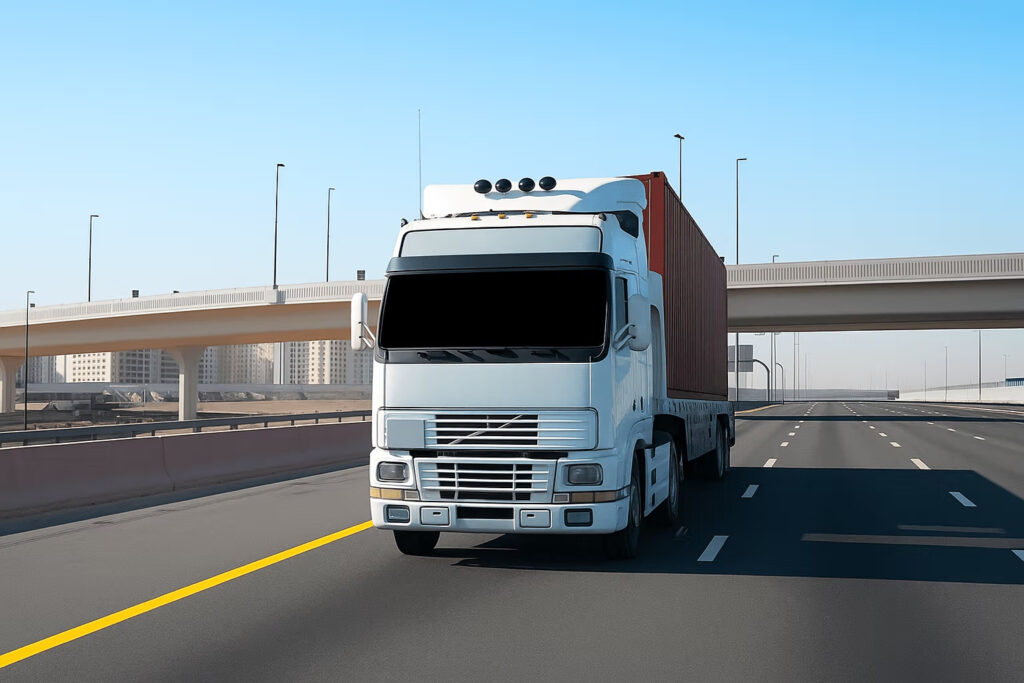RTA Dubai, i.e., the Roads and Transport Authority, has proposed five preliminary paths in which driverless heavy vehicles can pilot in the emirate as part of a newly sanctioned elaborate regulatory framework. The trials on such routes will be closely monitored, and some of them will be run with a safety driver. These routes will be within Jebel Ali Port, Al Maktoum International Airport, Jebel Ali Port Rail Freight Terminal, Dubai Investments Park, and Ibn Battuta Mall.

The trials on these routes will be closely monitored, and some of them will be run by a safety driver, while others will be dedicated to driverless operations. Dubai is stepping towards its self-driving future by launching five pilot paths of driverless heavy vehicles, announced by the Roads and Transport Authority (RTA). The relocation is in a broader regulatory structure that would bring autonomous technologies into the logistics and transport system of the emirate.
Table of Contents
5 Key Routes for Trials of Driverless Heavy Vehicles
The pilot phase will center on some of the busiest logistics and transport centers in Dubai. The identified routes are:
- Jebel Ali Port
- Al Maktoum International Airport
- Jebel Ali Port Rail Freight Terminal
- Dubai Investments Park
- Ibn Battuta Mall
The trials will be heavily observed, with some of the journeys covered by safety drivers and others going entirely driverless.
Regulatory Framework for Autonomous Heavy Vehicles
The recently accepted framework by the RTA specifies the standards of:
- Autonomous heavy vehicles licensing and registration
- Functional trial tests
- Safety requirements and technology requirements
- Meeting sustainability and efficiency standards
According to Mattar Al Tayer, the Director General and Chairman of the Board of Executive Directors of RTA, the framework is one of the major steps towards the realization of the objectives of the Smart Self-Driving Transport Strategy, according to which 25 percent of all mobility journeys within the emirate will be autonomous by 2030.
Economic and Environmental Impact
The Dubai fleet at present consists of 61,290 heavy vehicles with a weight range of 3.5 to 65 tonnes, according to RTA. This regulatory structure is aligned with the Dubai Commercial and Logistics Land Transport Strategy 2030, which aims at:
- Dh16.8 billion direct contribution of the logistics industry to the economy
- 75% usage of advanced technology
- 30% reduction of carbon emissions
- 10% increase in efficiency in operations
Dubai plans to integrate autonomous technologies into freight and logistics to be a global sustainability innovator in transport.
Also Read: India Wins Asia Cup 2025 Trophy by Defeating Pakistan in Final by 5 Wickets
Building on Autonomous Mobility Progress
The heavy vehicle pilot is based on the new autonomous passenger transport approvals, which have been made recently. Last week, Dubai issued licenses to three Chinese firms, Apollo Go by Baidu, WeRide, and Pony.ai, to trial self-driving vehicles in cities.
During a demonstration, an Apollo Go self-driving taxi has been able to traverse Jumeirah Road with a top speed of 72 km/h and make lane changes under the supervision of a safety driver. The passengers were provided with high-tech comfort, such as massage seats in the rear.
Industry Participation and Phase Two
Al Tayer emphasized that RTA is open to partnership not only with local logistics companies but also with the biggest international companies. Phase two of the regulatory framework is the pilot stage that follows phase one, which established the groundwork of:
- Safety compliance
- Sustainability measures
- Investor engagement
- Technology leadership
- Licensing standards
Simultaneously, RTA has also implemented, together with TruKKer and Logisty, a digital logistics platform. The site provides online reservations, real-time monitoring of fleets, and digitalized transportation, an additional boost to the logistics industry of Dubai.
A Vision for the Future
The introduction of trials of driverless heavy vehicles indicates the desire by Dubai to become the first to introduce next-generation mobility solutions. The emirate is making a bold move towards changing its transport and logistics environment by aligning its approaches with the economic and environmental strategies, as well as maintaining a high level of safety and control.
Dubai’s phase 2 of the autonomous heavy vehicle model is a stage that entails real-life testing and involvement in the industry, after the first stage, which entails setting safety standards and sustainability standards, and licensing requirements.

Al Tayer has invited local operators as well as global technology companies to attend the pilot by noting that autonomous heavy transport will be essential in the economic future of Dubai and its vision of being a global leader in smart mobility.
Through these tests, Dubai still remains a leader in driverless logistics services, which can become a prototype of urban freight transport innovation on the global level. As autonomous cabs are already being tested on roads in city centers and heavy vehicle trials are currently underway, Dubai is gradually moving up to its 2030 target of turning one in four journeys into a driverless one.

